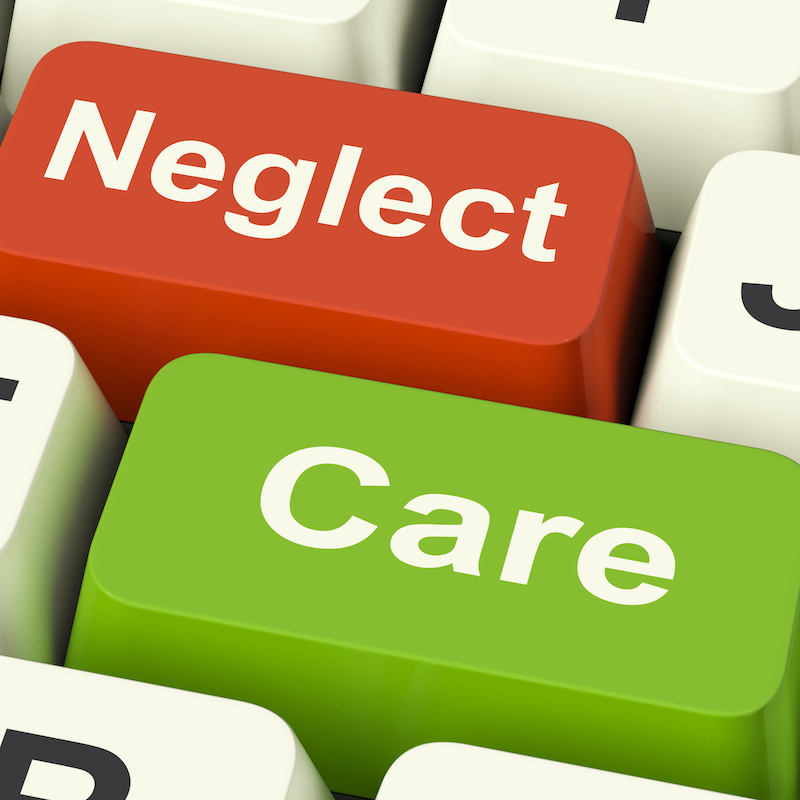Category Archives for "Attachment"
Emotional Neglect-Childhood Emotional Neglect-Jonice Webb, PhD-Dr. Jonice Webb-Running on Empty-Self-Discipline-Emptiness-Unfulfilled-Finding Meaning
Emotional Neglect-Childhood Emotional Neglect-Jonice Webb, PhD-Dr. Jonice Webb-Running on Empty-Self-Discipline-Emptiness-Unfulfilled-Finding Meaning

Neglect: Fail to care for properly.
We can neglect many different things in our busy lives. We can, at different times, neglect our houses, our gardens, our vehicles, or even our own bodies by simply failing to care for them properly. And many of us human beings do one or all of the above at various times.
But there is no form of neglect more personal, more powerful, or more harmful than the neglect of a child. There are several different ways that a parent can neglect a child and we will talk about those shortly.
But first, let’s take a look at some of the factors that can lead even the most caring parents to neglect their child.
When parents bring a new child into the world, it is their biological imperative to meet that child’s needs to the best of their ability. For that reason, none of the above reasons should be thought of as excuses. It simply does not work that way.
But, on the other hand, human beings are fallible and the world can be rough on parents. Losses, pain, health, deprivation, and struggle can harm parents and prevent them from providing what their children need.
Not all neglect is the same and, unfortunately, most people use the word “neglect” to define all types. It is also common to use the term, “abuse and neglect,” to lump neglect with abuse. This dangerous over-generalization prevents people from talking and thinking more specifically about exactly what they did not receive as a child.
Truly, it’s important. And I want you to help you become aware of what you did and did not receive. As you read the list below, I encourage you to consider which of your needs were well-met when you were a child and which needs may have been less so.
Most adults who look back on their childhoods and see that all of their physical needs were met find it hard to believe that they could have been neglected in any way. Yet “neglect” is far more complex than that.
For example, your stay-at-home mom may often be home and may drive you to every activity, yet fail to notice or respond to your feelings (Emotional Neglect). Or your dad, who talks a lot, may simply be talking about impersonal logistics and facts, and end up still emotionally neglecting you.
The opposite is also true. Your parent who is struggling and rarely home may show such emotional care and attunement with you that you feel deeply known, understood, and loved by them. In this case, the physical presence type of neglect you experience may do far less harm.
Take a few minutes to think about this. What did you get and what did you miss? Is it missing in your life now? If you are a parent or hope to be one, are you able to provide those missing ingredients to your children?
It is entirely possible to see what you didn’t get, understand why your parents could not, or did not, provide it, and fill those gaps for yourself. It is a process of providing yourself with the physical, attentional, and emotional nurturance that was missing for you.
Amazingly, once you have given yourself what you didn’t get, you can give it to others. Especially your own children. The reality is there is nothing more important than that.
CEN can be hard to see or remember so it can be difficult to know if you have it. To find out, Take The Emotional Neglect Questionnaire. It’s free.
To learn more about Childhood Emotional Neglect, see my first book Running on Empty

It’s like I have no emotions. I’m numb a lot of the time.
Something is missing in me.
I have no idea how I feel about anything.
Sometimes my chest feels hollow.
I feel empty inside.
What might seem like five unrelated statements is actually five different people describing the same feeling. It’s a hard emotion to identify, and even harder to put into words. Everyone says it differently because there is no standard label for it. But for these five people, and thousands more, it is the same feeling, caused by the same problem.
The one word that sums it up best:
Emptiness
Of all the different emotions that a person can have, Empty is one of the most uncomfortable. To feel Empty is to feel incomplete. It’s a feeling of something absent or missing inside of you, of being different, set apart, alone, lacking, numb.Continue reading

What does the term “emotionally unavailable” mean to you? It’s a term that’s thrown around a lot, but it doesn’t necessarily mean the same thing to everyone.
Have you ever been in a relationship or marriage with someone who you felt was emotionally unavailable? Has any friend or romantic partner ever described you this way?
The term, in my opinion, carries some irony. Because if you are truly emotionally unavailable, it will be very difficult to understand the meaning of the term. In other words, it really helps to be emotionally available if you want to understand what it means to be unavailable.
Much of this has to do with how a person deals with his or her own emotions. This typically goes back to how your emotions were treated as a child. Did your parents notice what you were feeling enough of the time? Did they ask? Did they care what you felt and what you needed, and do their best to meet your true needs? Did they succeed?
Surprisingly, it matters less whether your parents tried. What really matters is whether or not they succeeded. If your parents weren’t able, for any reason, to notice and respond to your feelings and meet your emotional needs, then you are at risk of being an emotionally unavailable adult.
Here’s why. When a child’s feelings and emotional needs are treated as if they matter, that child receives a loud and clear message: “Your feelings are real, and they matter.” This encourages the child to pay attention to his emotions, and teaches him how to manage, express, and use them throughout his adult life. The converse is also true. When a child’s emotional needs are treated as if they don’t matter, the message to the child is, “Your feelings don’t matter.”
A child who receives this message will not be consciously aware of it and will not remember it. This is because typically it was never stated outright; it was a subliminal message delivered by the absence of response and validation from the parents. But that child will accommodate, as children do. She will suppress her emotions by pushing them far and away so that they will not bother her parents or herself.
Years later, in relationships, that child will continue to lack access to his emotions. To his friends or romantic partner, he may seem to be difficult to connect with. Others can see his depth and quality but have trouble reaching it.
Here are some of the complaints that I have heard from various patients about their emotionally unavailable boyfriend, girlfriend, husband, or wife:
“He just shuts down and refuses to talk to me when there’s a problem.”
“She’s a great person, but she doesn’t tell me what she needs or feels.”
“I know that he loves me, but I can’t feel the love from him.”
If you identify with this description of “emotionally unavailable,” do not despair. There are solutions to this problem. And the solution lies with you. The solution is to get in touch with your feelings, accept them, and use them. It sounds simple, but it is not. It’s a process that requires purpose and effort and work. But it can be done.
If, on the other hand, you are in a relationship with someone who is emotionally unavailable, you are in an even more difficult spot because it is easier to change yourself than it is to convince someone else to change. However, there are somethings that you can do.
To learn much more about how to recognize CEN in your marriage and talk with your spouse about it, see the book, Running On Empty No More: Transform Your Relationships With Your Partner, Your Parents & Your Children.
To learn more about Childhood Emotional Neglect, see my first book Running on Empty.
This article was initially posted on Psychcentral.com. It has been republished here with the permission of the author and Psychcentral.

Childhood Emotional Neglect or CEN does not go away just because you grow up.
Being raised in a family that does not address your feelings (or, in other words, an emotionally neglectful family), launches you into your adult life without two things that you absolutely need for a healthy, happy, resilient marriage. The two missing things are full access to your feelings, plus the emotional skills to manage and express them.
It’s difficult enough when one member of a couple has CEN and the other does not. But when two CEN people marry, special challenges abound. Neither spouse has full access to their emotions and neither has the necessary emotion skills.
Meet Olive and Oscar. I told their story in my second bestselling book, Running On Empty No More: Transform Your Relationships With Your Partner, Your Parent & Your Children. Today, I am sharing a free vignette from the book that describes exactly how it feels to be in a double-CEN marriage.
Olive and Oscar sit across the table from each other, quietly having their Sunday morning breakfast.
“Is there any more coffee?” Olive asks absentmindedly while reading the day’s news on her laptop. Irritated, Oscar stands up abruptly and walks over to the coffee-maker to check.
“Why does she always ask me? She’s so manipulative. She just doesn’t want to have to walk over to the coffee-maker herself,” he cranks inwardly. Returning to the table with the pot, Oscar fills Olive’s cup. Placing the empty carafe on the table with a slight bit of excessive force, Oscar sits back in his chair with a sigh and an angry glance at Olive’s still-bowed head.
Olive, sensing something amiss from the placement of the carafe and the sigh, quickly looks up. Seeing Oscar already absorbed in his newspaper, she looks back down at her laptop but has difficulty focusing on her reading.
“I wonder what’s going on with Oscar,” she muses. “He seems so irritable lately. I wonder if his work stress is coming back. It must be his job pressure getting to him again.”
After thinking it through, Olive makes a plan to avoid Oscar for the day in hopes that giving him some alone time will help his mood improve (with the added bonus that she won’t have to be around him). Olive makes a plan to ask him about work at dinnertime to see if he is indeed under stress.
Later that evening Olive returns from her errands and finds that Oscar has made dinner for both of them. Sitting down to eat, Oscar seems to be in a better mood.
After a brief exchange about Olive’s errands, she asks, “So how are things at work?”
Looking at Olive quizzically, Oscar answers, “Fine, why do you ask?”
“No reason,” Olive replied, relieved to hear him say it was fine. Do you want to watch the next episode of Game of Thrones while we eat?”
The TV goes on and they eat dinner in silence, each absorbed in the show.
The double CEN (Childhood Emotional Neglect) couple seems much like every other couple in many ways. And yet they are very, very different. This type of relationship is riddled with incorrect assumptions and false readings. And unfortunately, neither partner has the communication skills to check with the other to actually find out what he is thinking or feeling, or why she does what she does.
Since neither partner knows how to talk about the frustrations and conflicts that naturally arise (as they do in every relationship), very little gets addressed and worked out. This is a set-up for passive-aggressive retaliation that, over time, eats away at the warmth and caring in the marriage, outside of both partners’ awareness.
Small, indirect actions like carafe-slamming, avoidance, ignoring, and forgetting can become the primary means of coping and communicating in the relationship. None of them are effective.
In the scenario above Oscar misinterprets Olive’s thoughtless absorption in her reading as “manipulative,” and Olive misinterprets Oscar’s irritation with her as the possible result of job stress. Instead of dealing with these issues directly at the moment, Olive chooses avoidance for the day. Her question to Oscar that evening at dinner is too simple and off-target to yield any useful information. She is left with a false sense of reassurance that Oscar’s mood magically improved and that nothing was really wrong in the first place.
So forward they go, into the coming weeks, months, and years, with Oscar viewing Olive as lazy and manipulative, and Olive on constant guard against a return of Oscar’s job stress. Drastically out of tune with one another, they live in separate worlds, growing ever distant from each other.
Olive and Oscar sometimes feel more alone when they are together than they do when they are apart. They are divided by a chasm as wide as the ocean. They each sense that something important is wrong, but sadly, neither can consciously describe nor name it.
Fortunately for Olive and Oscar, they actually have loads of potential. They each have plenty of feelings; they are simply not aware of those feelings or able to use them in a healthy, relationship-enriching way. At the heart of their marriage are companionship, history, concern, and love. All that is really missing from their marriage is emotional awareness and skills, both of which can be learned.
There is a good chance that one day, one of them will “wake up” emotionally, and knock on the other’s wall.
Watch for Olive & Oscar Part 2 in a future article, and you will see that is exactly what happened.
Emotionally neglected kids grow up to emotionally neglect themselves. Then, when they get married, it is natural (not the same thing as healthy) that they will emotionally neglect their spouses.
In so many vitally important ways, the Emotional Neglect that happens in a marriage is no one’s choice and no one’s fault. It is literally programmed into the emotionally neglected child.
Every day, in my office, I help couples understand what’s missing and why. Together, we relieve them from the blame and shame and set them on the path forward.
In a future post, Part 2, I will share the continuation of Olive and Oscar’s story from the book Running On Empty No More: Transform Your Relationships With Your Partner, Your Parents & Your Children. You will see where the path of CEN recovery took them, which was right to my office for couple’s therapy. You will learn about my work with them, and how their efforts to heal their marriage sent ripple effects through their children and their parents.
To learn more about how Childhood Emotional Neglect happens, what makes it so unmemorable, and how to heal yourself, see the book Running On Empty: Overcome Your Childhood Emotional Neglect.
A version of this post was originally published on psychcentral.com. It has been reproduced here with the permission of the author and psychcentral.

Are you secretly relieved that social distancing is giving you a built-in excuse? Few social demands, fewer social gatherings, canceled group activities?
Remember how you used to feel when you were invited somewhere? All kinds of things went through your head as your discomfort grew:
How many people will be there?
I prefer one-on-one.
I’d rather be alone.
I don’t like being in a group.
I don’t want to go.

All happy families are alike; each unhappy family is unhappy in its own way.
– Leo Tolstoy in Anna Karenina
Even though every child is different, all children are also the same in one very important way. In order to thrive, children require emotional attention, validation, and responsiveness from their parents.
Knowing that you need to provide this to your child gives you a tremendous leg up on parenting. But knowing how to provide it is another thing altogether.
Think of parenting as a process of teaching your children how to manage their emotions. The better you handle your children’s emotions, the better they will be at managing them throughout their lives.
Although these skills sound simple, in combination they are a powerful tool for helping children learn about and manage their own nature, for creating a secure emotional bond that carries the children into adulthood, so that they may face the world with the emotional health to achieve happy adulthood.
In short, when parents are mindful of their children’s unique emotional nature, they raise emotionally strong adults. Some parents are able to do this intuitively, but others can learn the skills. Either way, the child will learn them.
Zach
Zach is a precocious and hyperactive third-grader, the youngest of three children in a laid-back and loving family. Lately, he has gotten into trouble at school for “talking back.” On one such day, he brings a note home from the teacher describing his infraction by stating, “Zach was disrespectful today.”
Zach’s mother sits him down and asks him what happened. In an exasperated tone, he tells her that when he was in the recess line Mrs. Rollo told him to stop trying to balance a pencil on his finger, point-side-up because he might “stab himself in the face.” He frowned and snapped back at Mrs. Rollo by telling her that he would have to bend “alllll the way over the pencil like this” (demonstrating) to stab himself in the face and that he isn’t “that stupid.” In response, Mrs. Rollo confiscated his pencil, wrote his name on the board, and sent him home with a note.
Before describing how Zach’s mother actually responded, let’s figure out what Zach needs to get from the coming parent-child interaction: he is upset by the incident with his teacher, whom he generally likes, so he needs empathy; on the other hand, he also needs to learn what is expected of him by his teachers in order to succeed at school. Finally, it would help if his mother has noticed (emotional attentiveness) that lately, he is very sensitive to “being treated like a baby” because his older brother and sister leave him out a lot due to his age. Zach’s mother needs the three skills: feeling a connection, paying attention, and responding competently, in order to help Zach with his problem.
Here is how the conversation went between mother and son:
Mother: “Mrs. Rollo didn’t understand that you were embarrassed by her thinking you could be stupid enough to poke your eye out with a pencil. But when teachers ask you to stop doing something, the reason doesn’t matter. It’s your job to stop.”
Zach: “I know! I was trying to say that to her and she wouldn’t listen!”
Mother: “Yes, I know how frustrated you get when people don’t let you talk. Mrs. Rollo doesn’t know that you’re dealing with your brother and sister not listening to you much lately.”
Zach relaxes a little in response to his mother’s understanding: “Yeah, she got me so frustrated, and then she took my pencil.”
Mother: “It must’ve been hard for you. But, you see, Mrs. Rollo’s class is very big and she doesn’t have time to talk things over like we are right now. It’s so important that when any grownup at school asks you to do something, you do it right away. Will you try to do as asked without saying anything back, Zach?”
Zach: “Yeah, Mom.”
Mother: “Good! If you do what Mrs. Rollo asks, you’ll never get in trouble. Then you can come home and complain to us if you think something is unfair. That’s fine. But as a student, respect means cooperating with your teacher’s requests.”
This mother’s intuitive responses in the above conversation provide us with a complex example of the healthy, emotionally attuned parenting that leads to the sane, happy adult whom Winnicott describes. What exactly did she do?
-First, she connected with her son emotionally by asking him to tell her what happened before she reacted. No shaming.
-Then she listened carefully to him. When she first spoke, she provided him with a simple rule that an eight-year-old can understand: “When a teacher asks you to do something, you do it right away.” Here Zach’s mother is instinctively attuned to his stage of cognitive development, providing him with a general rule to use at school.
-She immediately follows the rule with empathy and naming his feeling (“Mrs. Rollo didn’t understand that you were embarrassed…”). Hearing his mom name the feeling, Zach is able to express more of his emotion to his mother (“I know! I was trying to say that to her and she wouldn’t listen!”).
-Again, his mother responds to Zach by naming or labeling the emotion that drove Zach’s rude behavior towards his teacher, the behavior of contradicting the teacher that was viewed as disrespectful (“Yes. I know how frustrated you get when people don’t let you talk…”).
-Zach, feeling understood, responds by repeating this emotion word for himself, “Yeah, she got me so frustrated, and then she took my pencil.”
-But the mother isn’t finished yet. She has, in this conversation, demonstrated to Zach that she understands him and feels for him by demonstrating that she sees his behavior differently than his teacher does. However, she can’t stop there, because his tendency to debate (the likely result of having two highly verbal older siblings) will continue to be a problem for Zach at school unless he can correct it. So his mom says, “It’s so important that when any grownup at school asks you to do something, you do it right away.”
-Finally, she holds her son accountable for his behavior, setting the stage for future check-ins on his feisty nature by asking him, “Will you try to do as asked without saying anything back, Zach?”
In a conversation that appears deceptively simple, Zach’s mother has avoided shaming him for a mistake and named his feelings, creating the emotional learning that will allow Zach to sort his feelings out on his own in the future. She has also supported him emotionally, given him a social rule, and asked him to be accountable for following it. And, in the event that Zach repeats this behavior at school, she will adjust her message and her actions to adapt to the difficulty he is having in the classroom.
One of the biggest challenges for most parents in this area comes from their own lack of skills for managing their own emotions. It’s hard to give your children something that you don’t have yourself.
If this sounds like you, never fear. It’s not your fault. Most likely your parents didn’t teach you the skills because they didn’t have them. And the best part is you can learn the skills!
Learn more about all aspects of CEN’s effects on your life in my Free CEN Breakthrough Video Series.
To find out how to learn the skills for yourself, see the bestselling books, Running on Empty: Overcome Your Childhood Emotional Neglect and Running On Empty No More: Transform Your Relationships With Your Partner, Your Parents & Your Children.
This blog is adapted from the book: Overcome Your Childhood Emotional Neglect. It was originally published on psychcentral.com as The 3 Essential Emotion Skills For Parenting. It has been reproduced here with the permission of the author and Psych Central.

Father’s Day is easy for all of the people who feel loved by, loving, and close with their dads. If your relationship with your father is strong and uncomplicated, I hope you will give him the wonderful Father’s Day that he so deserves.
But the world is full of people who have more complex relationships with their dads. If you feel either confused or disappointed about your father, there’s a fairly good chance that it’s because of Childhood Emotional Neglect or CEN.

In the United States of America, it is a time of reckoning. As a nation, as a people, who do we want to be?
Divided? Filled with hate and judgment of each other? We must decide.
In 2016, a reader commented on my blog, and it made me think deeply about anger, hate, and the harsh way that humanity judges and treats those who are different from ourselves. That reader’s comment inspired me to write this blog post on Psychcentral. Today, in 2020, it is still highly relevant. I have updated it and republished it here.
I’m a white working-class man. I was abused physically, sexually, and emotionally by people I trusted as a child.
The unquenchable anger from the white working class is not caused by a government or system or any other institution. It is caused by neglectful and abusive parenting. You simply can’t stay that angry, resentful, and cruel all your life if you grew up with loving people, no matter what government you have.
When people call others, like millennials, “pampered” what they are really saying is that they wish they had received that kind of care when they were young. When they brag how their toys and playgrounds were unsafe and they turned out OK, what they are really saying is that they wish someone had cared enough to put rubber matting under their own swings when they were growing up.
These people’s parents, guardians, and leaders deflected their own anger from the true target, their own parents, to “others” who did not look like them.
As a child, your parents really scare you when they spit out whatever nasty words they may have used to describe people who are of different races or creeds. You get afraid of these people, and because they don’t look nor talk like you they are very easy to spot. The working-class white people’s current anger is the flip side of genuine fear. A fear you were taught before you could form words.
A man stood on my street corner the day after the election and shouted to all of us, “Those ****” are going to get what’s coming to them now.” He looked like a 60-year-old teenage boy who can’t stop being afraid.
Neglect and abuse are passed down like a family heirloom and often go side by side. Parents will often go from one to the other as the day goes on.
As a trained therapist I believe you could provide much value by teaching people with this much hate how to break the chain of hate by raising their children with attention and love.
Truth be told, I felt somewhat stunned as I read this comment. It expressed in perfect prose some things that I know, with every fiber of my being, are fundamental truths.
Yes, anger is the flip-side of fear.
Yes. The way we treat our children shapes our world.
Yes. Of course. Childhood neglect and abuse are the root causes of anger, racism, and hate.
Anger is a fascinating emotion in many ways. It flows like water, touching and affecting all who are near it. One important way that anger differs from other emotions is that it always seeks a target.
Anger is not satisfied floating freely, like sadness or other forms of pain. Anger is built into us as a self-protective measure, so it naturally needs to be directed at someone or something.
So what if that “someone” who’s the true target is our parent? Our parent who is angry or scary, or inattentive. Our parent who has hurt or neglected us, but upon whom we are completely dependent for food, clothing, shelter, and all forms of care.
A child’s own anger seeks another, safer target; one removed as far as possible from our childhood home. The farther removed the target, the safer it feels for us. It’s a natural human process that is virtually wired in.
Here’s what I believe. Racism will never go away until we all face the true source of our own fear and anger. I hope that we can stop misdirecting our feelings, and have the courage to parent our own children differently than we were parented ourselves.
Let’s face our own pain, and work through it in a healthy way. It’s for the children. It’s for our country. It’s for our world.
Childhood Emotional Neglect can be invisible and unmemorable so it can be hard to know if you grew up with it. To find out, Take The Emotional Neglect Test. To learn more about how CEN affects relationships see my new book, Running on Empty No More: Transform Your Relationships. To learn more about Childhood Emotional Neglect, see my first bookRunning on Empty.
Warm thanks to Tyler, who authored the candid, thoughtful comment that inspired this article.
This article was originally posted on Psychcentral. It has been updated and republished here with the permission of the author and Psych Central.

Julie
Julie loves her husband Dom very much, but lately, all they seem to do is fight. Julie wonders how Dom can possibly complain that she’s not home enough lately when he can see how many demands she is juggling.
Bill
Bill struggles to do everything right in life. He has a good job and a family that loves him. Yet he walks through his days feeling numb. As he provides for his family and responds to his boss’s every request, he sometimes wonders what it’s all for. Recently he’s been drinking more than he should.
House, job, family. Parenting, grocery shopping, errands, and social media; we are all people of the world. And in today’s world, our lives are overly full in so many ways. So it’s ironic that so many of us feel so very UN-full.
The feeling of emptiness is elusive. It’s experienced differently by different people. Hardly anyone knows how to put it into words. So you may at times say you’re stressed or down because it’s the best word you can come up with, even though it doesn’t seem to quite capture what you feel.
Even more likely, you say nothing. After all, you may have a life that is actually quite full. And you may assume that everyone feels this way.
Whatever your personal experience of emptiness, the roots of this feeling almost always can be found in your childhood.
We grow up in households that are busy or struggling, and somehow not quite emotionally nurturing enough. From this, we learn everything about how to stay busy and struggle, but little about how to nurture ourselves.
So we grow up looking in all the wrong places for support and fulfillment. We live our adult lives with a sense that something is missing, and no idea how to find it.
Julie
Julie can’t see what Dom sees: that she is hugely over-committed. In addition to her job and her two daughters, she volunteers on two committees at the school. She’s involved in a town fundraiser, and now she’s talking about starting up a small business on the side. Dom watches helplessly as Julie becomes increasingly depleted and worn.
Over-committed and joyless, Julie has lost her way. She seeks to fill herself up with activity, projects, and maybe some recognition, with perhaps a little money thrown in. On this path, Julie will never stop having those pangs of emptiness that come and go.
Bill
Bill walks through life feeling numb and knowing that something is not right. He knows he should be happier and more fulfilled. After all, he’s the man with everything. Bill has no idea that throughout his struggle to do everything right in life, he has missed the boat on what truly matters to him.
Bill knows how to walk the walk, but he doesn’t know how to feel. He’s caught up in the externals of life, and he cannot see himself. Bill is missing out on what could give his life meaning: his feelings.
No matter what type of emptiness you feel and how you’ve tried to fill it, it’s never too late or too tall a task to change your course.
Focusing inward instead of outward; noticing your own feelings and needs and trying to meet them; finding what makes you happy, and making memories with people you care about. This is the path to filling yourself.
To learn more about how to become more self-aware and fill yourself up, see the book Running on Empty.
This article was originally published on psychcentral.com. It has been updated and published here with the permission of the author and PsychCentral.

Jack
Ten-year-old Jack walks slowly home from school, dreading the moment when he has to walk through the door of his house. He has no idea what kind of mood his mom will be in. She may greet him warmly or she may lay into him, calling him a “lazy bastard, just like your father.” Filled with a dread of what’s to come, the closer Jack gets to home, the more slowly he walks.
Sadie
Ten-year-old Sadie has lived in a large, mostly empty house with her mother since her parents split up. She misses her father and brother desperately. The household used to be active and busy; now it feels quiet, empty, and lonely. Sadie worries about her mother sequestered in her own room; so near and yet so far away. “I wish Mom would talk to me sometimes like she used to,” Sadie thinks. She sits on the edge of her bed and sobs quietly so that her mother won’t hear her.
While emotionally abusing a child is like emotionally punching him, Emotional Neglect is more akin to failing to water a plant. While the emotionally abused child learns how to brace for a punch, the emotionally neglected child learns how to survive without water.
It has never stopped amazing me how often the terms emotional abuse and emotional neglect are misused. In articles, in books, and even in the professional literature and scientific studies, they’re incorrectly interchanged quite frequently. Typically emotional neglect is called emotional abuse, and far too often emotional abuse is referred to as emotional neglect.
But the reality is that they could hardly be more different. They happen differently, they feel different to the child, and they leave different imprints on the child once he or she grows up.
Emotional abuse is an act. When your parent calls you a name, insults or derides, over-controls, or places unreasonable limits on you, she is emotionally abusing you.
Emotional Neglect, on the other hand, is the opposite. It’s not an act, but a failure to act. When your parent fails to notice your struggles, issues, or pain; fails to ask or be interested; fails to provide comfort, care, or solace; fails to see who you really are; These are examples of pure Emotional Neglect.
To see the different effects of emotional abuse and emotional neglect, let’s check in on Jack and Sadie 32 years later.
Jack
At 42 Jack is an accountant and is married with two children. Jack’s employers love his work and like him as a person. Nevertheless, he has switched jobs every two years, on average, throughout his career. In every job, Jack somehow ends up locking horns with co-workers. This is because he tends to take any form of mild request or negative feedback as criticism. Then he either hides, keeping his head down, or strikes back.
At home, Jack loves his wife and children. But his wife gets upset with him because he can be very hard on his children. Jack expects perfection and can be very demanding and critical, bordering on verbally abusive but never quite crossing the line to belittling or name-calling.
Generally, Jack goes through life braced for the next “hit.” He puts one foot in front of the other, wondering what negative event will befall him next.
Sadie
At 42 Sadie is a Physician’s Assistant in a large, busy medical practice. She, like Jack, is married with two children. At work, Sadie is known as “the problem-solver.” She is able to resolve, smooth over, and answer every single problem or question that arises, so everyone goes to Sadie for help. Sadie is gratified by her reputation as super-competent, so she never says “no” to any request.
People look at Sadie and see a wonderful wife and mother. She loves her husband and children, and they love her back. But Sadie, her husband, and everyone else is puzzled about why her children are so angry and rebellious. They seem unhappy and act up in school. Sadie is exhausted by the heavy demands in her life. She’s so busy helping and giving to others she has no idea that she needs “watering” too. Sadie feels burdened, empty, and alone much of the time.
Jack and Sadie are good examples of the differing effects of emotional abuse and emotional neglect. Jack struggles to manage and control his own feelings and reads malice into other people’s feelings. In contrast, Sadie’s emotions are suppressed. She lacks access to her own feelings so much that she lives for other people’s feelings. She struggles to set limits at work, and at home with her own children.
What Jack and Sadie have in common shows the overlap between emotional abuse and emotional neglect. They both feel depleted and empty. They both feel confused, lost, and somewhat joyless. Neither is able to experience, manage, or express their feelings in a healthy or useful way.
And now for the great news. Both Sadie and Jack can heal.
And even more importantly, it is vital that you recognize, own, accept, and learn about yourself, and realize why YOU matter.
To find out if you grew up with Childhood Emotional Neglect or CEN, sign up to Take the CEN Questionnaire. It’s free! To learn more about recovery from Childhood Emotional Neglect, see the book, Running on Empty.
**IMPORTANT NOTE: If you are a licensed therapist located anywhere in the world who would like to help people work through their Childhood Emotional Neglect and receive referrals from me, fill out this form to receive my newsletter for therapists and learn how. If you have read both of the Running On Empty books and taken one of my CEN Therapist Trainings, you can be listed on my Find A CEN Therapist Page.
A version of this post was originally posted on Psychcentral.com. It has been republished here with the permission of the author and Psychcentral.